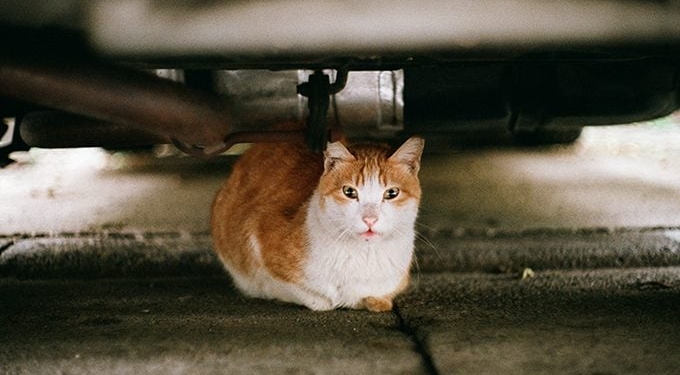Since the U.S. outbreak of highly pathogenic avian influenza (HPAI, more specifically avian influenza type A H5N1) in dairy cattle began in March 2024, dozens of cats are known to have contracted the virus. This includes barn and feral cats, indoor cats, and big cats in zoos and in the wild.
In fact, barn cats dying at multiple dairies helped veterinarians discover the virus in dairy cattle. Even before then, cats were known to be susceptible to the H5N1 virus, with several feline cases linked to poultry or wild bird exposure before the virus was first detected in dairy cattle.
Pet cats have become ill or died from consuming raw pet food and unpasteurized milk contaminated by highly pathogenic avian influenza (HPAI, more specifically avian influenza type A H5N1).
Now a new source of exposure is affecting cats: raw diets containing poultry such as duck, turkey, or chicken that were contaminated with the virus.
Raw food contaminated
Early in December, the pet food company Northwest Naturals issued a voluntary recall of one batch of its 2-lb Feline Turkey Recipe raw frozen pet food after it tested positive for H5N1.
The Portland, Oregon-based company’s recall affects products with “best if used by” dates of May 21, 2026, and June 23, 2026. The contaminated pet food was distributed in multiple states, including Arizona, California, Colorado, Florida, Georgia, Illinois, Maryland, Michigan, Minnesota, Pennsylvania, Rhode Island, and Washington, as well as in British Columbia, Canada.
A house cat in Washington County contracted H5N1 and died after consuming the raw frozen pet food. Testing conducted by the Oregon Veterinary Diagnostic Laboratory (OVDL) at Oregon State University and the U.S. Department of Agriculture’s (USDA) National Veterinary Services Laboratories (NVSL) indicated a genetic match between the virus in the food and the infected cat.
“We are confident that this cat contracted H5N1 by eating the Northwest Naturals raw and frozen pet food,” Oregon Department of Agriculture (ODA) State Veterinarian Dr. Ryan Scholz said in a statement. “This cat was strictly an indoor cat; it was not exposed to the virus in its environment, and results from the genome sequencing confirmed that the virus recovered from the raw pet food and infected cat were exact matches to each other.”
While the USDA and Food and Drug Administration (FDA) have yet to release formal statements addressing the recall, the ODA worked with Northwest Naturals to initiate the voluntary recall. Consumers are being urged to immediately stop feeding the affected product to their pets and to dispose of it safely. Pet owners are also encouraged to monitor their pets for unusual signs of illness and seek veterinary care if necessary.
The Los Angeles County Department of Public Health (LACDPH) issued a warning on December 31, 2024, stating that a house cat with a laboratory-confirmed H5N1 infection had consumed raw pet food from Monarch Raw Pet Food. Four other cats from the same household were presumed to have contracted the virus after consuming the same product. Monarch Raw Pet Food’s products were sold at farmers’ markets in Laguna Niguel, Orange, San Jacinto, and Fountain Valley, California.
The LACDPH is also investigating a separate incident involving four cats in a household that became ill and died after consuming raw unpasteurized milk, the department said.
Protecting cats and people
Signs of H5N1 in cats include fever, lethargy, heavy discharge from the eyes and nose, respiratory distress, and neurological issues. Disease in affected cats can rapidly progress to death. Rabies also should be considered among differential diagnoses for cats with neurologic signs.
While human infections remain rare, experts stress the importance of proper hygiene when handling raw pet food and applying personal protective measures when interacting with sick or dead animals.
Veterinarians should take precautions to protect themselves and other team members, as described by the Centers for Disease Control and Prevention. For example, veterinary teams are urged to use their hospital’s protocols for isolating and managing patients with suspected zoonotic diseases.
Cats with suspected H5N1 should be reported to a state animal health official, state public health veterinarian, or state veterinary diagnostic laboratory. These authorities may direct veterinarians to collect and submit samples for testing.
State and federal experts are encouraging people and their pets to avoid consuming raw or undercooked meat products as well as unpasteurized dairy products.
Experts also recommend that everyone:
- Limit contact with sick or dead animals.
- Keep cats indoors to prevent exposure to birds and other wildlife.
- Change clothes and shoes, and thoroughly wash any exposed skin, after interacting with sick or dead animals that may harbor the H5N1 virus, and before interacting with their cat
- Keep pets and poultry away from wild waterfowl.






























Discussion about this post